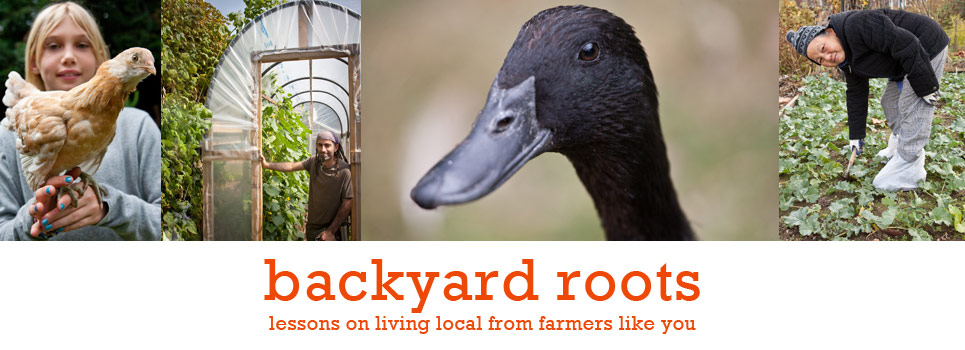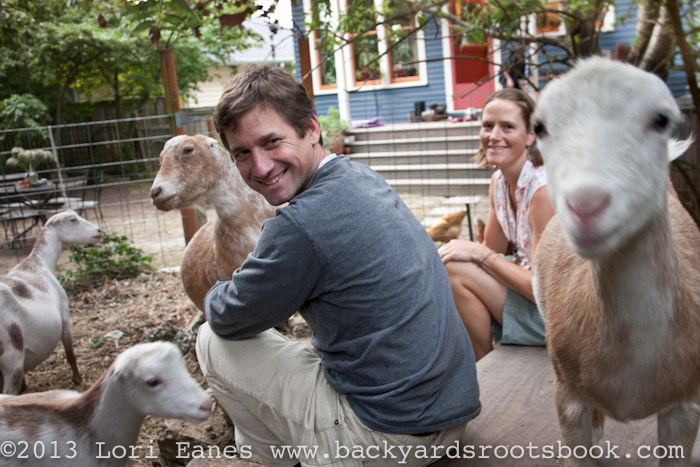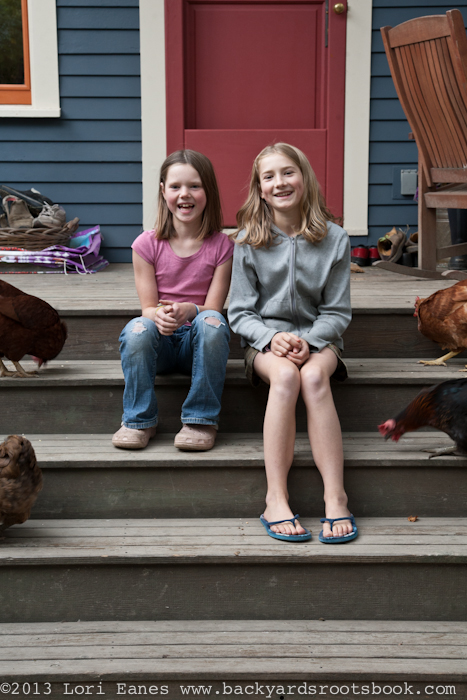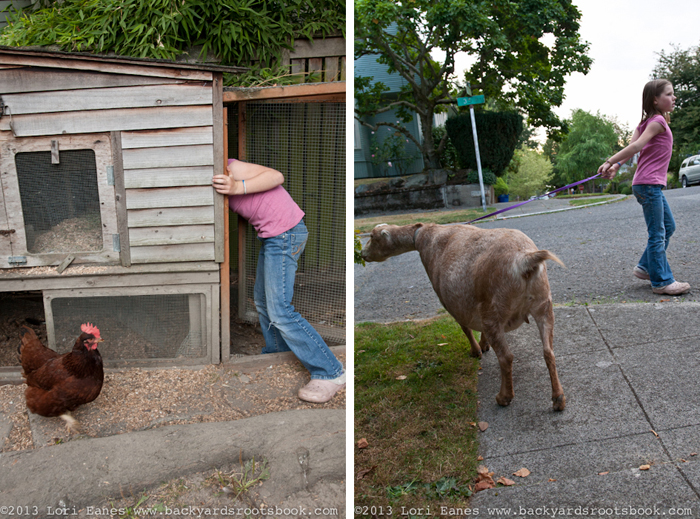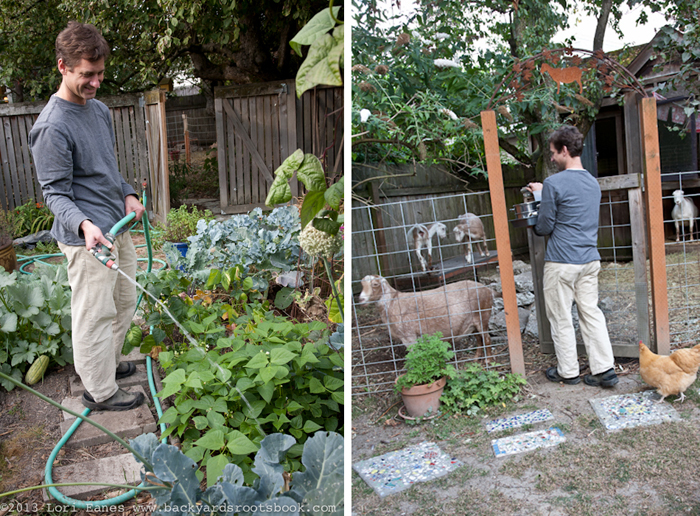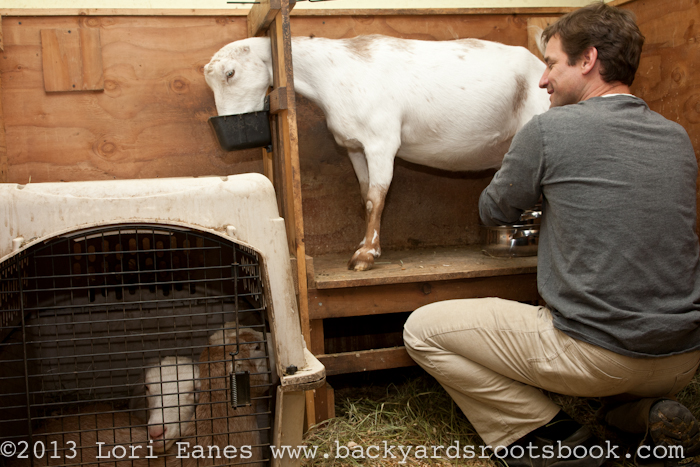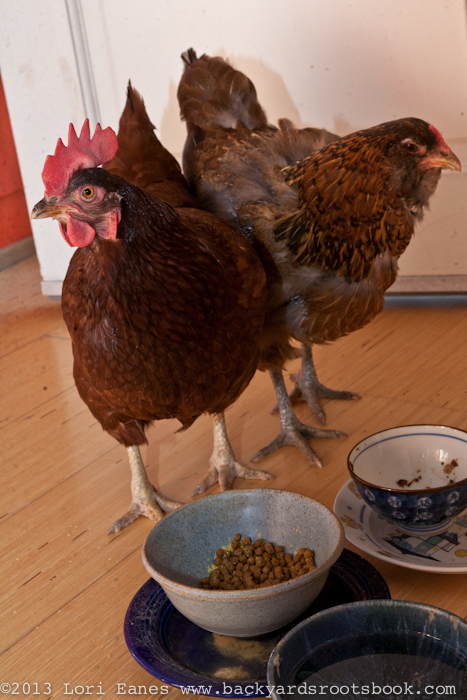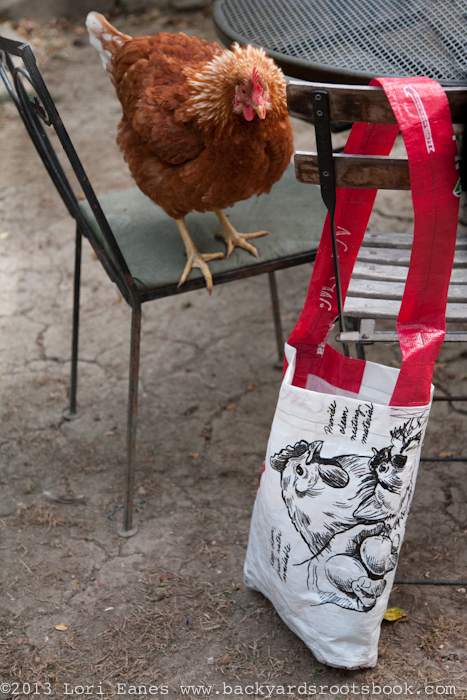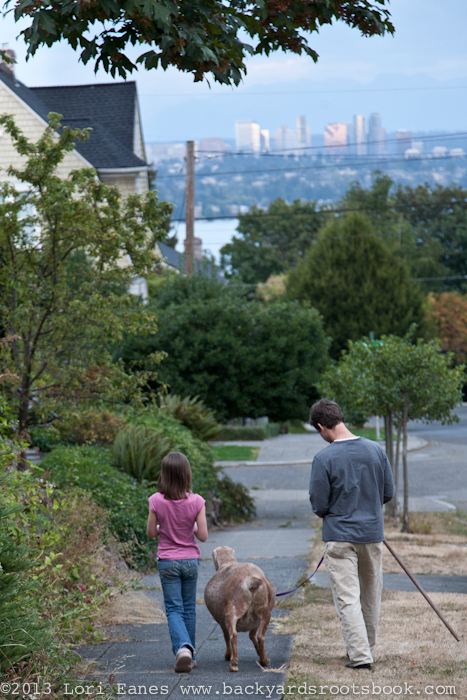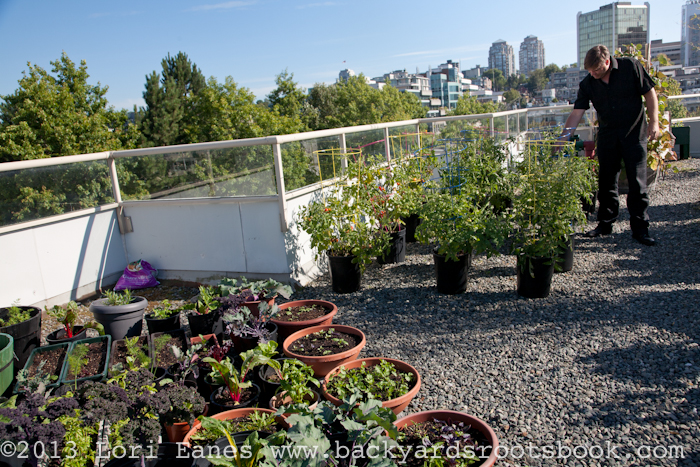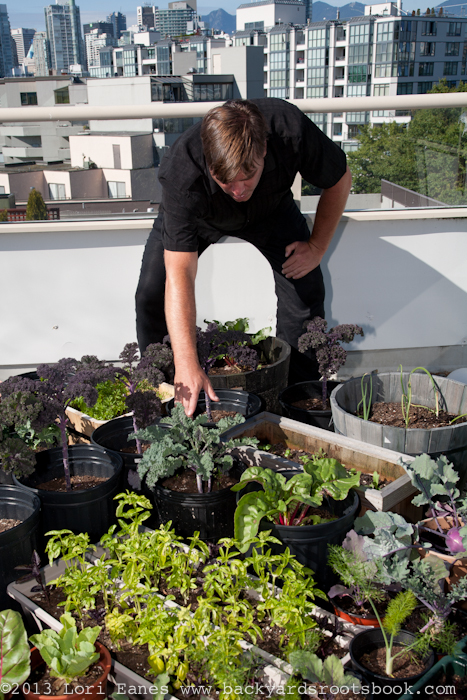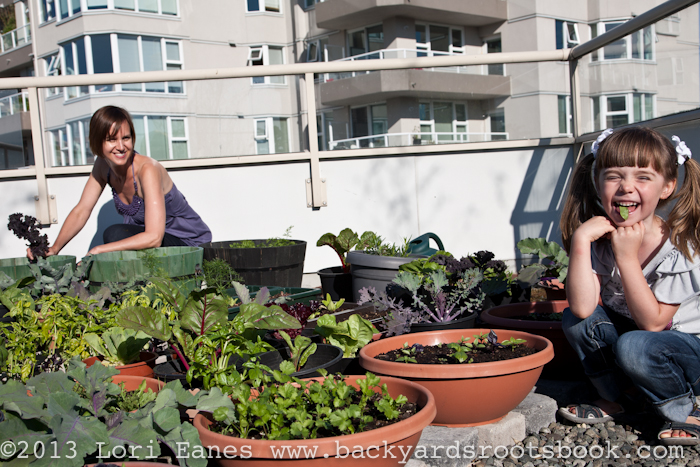Sometimes there’s no grand plan to having an urban farm, it just happens. That’s the way it went with Tom and Didi’s Seattle backyard. Didi had always been a big gardener and wanted chickens, so growing vegetables and getting chickens was easy. Next a friend needed someone to take over her bee hive, so they adopted the hive and got bees. And then they met Jennie Grant, a neighbor whose son went to school with the Burpee kids. When Jennie needed help getting backyard goats legalized they naturally gathered signatures for the petition. (Jennie Grant’s story is in Backyard Roots.) Tom even made a hilarious music video about the process called Justice League Blues. Check it out, the entertainment value is high! After tasting how good fresh goat milk was, the Burpee family became interested in the idea of getting goats. The deal was sealed when Jennie’s baby goat needed a new home. Tom says at that point the backyard became “the land of milk and honey.” Now the animals and garden is just part of the daily routine.
Tom cautions others to not “jump into goat-keeping lightly.” The amount of work that goats require is a lot more than chickens. He and Didi milk the goats twice a day for up to 18 months after they give birth. He says a big part of being successful requires having patient neighbors. “Bribe them regularly with cheese, eggs and honey,” he advises. It’s also crucial to have friends and neighbors trained to help you milk the goats when you need a break. The Burpees have La Mancha goats that tend to be quieter, calmer and better milk producers than other small breeds.
Tom and Didi haven’t pushed their kids with lots of farm chores but the two girls help collect eggs, harvest honey and like to cook and eat whatever is in season. Ada is the expert in making goat milk ice cream in exotic flavors like candied ginger and they both love having the animals, especially the baby goats.
